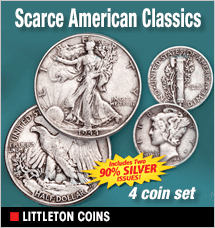Silver Screen, Golden Years
The Shop Around the Corner

The Shop Around the Corner (1940) nostalgically shows us the finely delineated everyday holiday moments that require more patience and courage, give more delight and a bigger emotional rush than even the most hectic modern countdown to Christmas. Reportedly it is director Ernst Lubitsch's favorite film, and no one wonder, for it blossoms with so much of his personally constructed Gemütlichkeit. It begins with the lilting, breezy dance orchestra music we hear at the opening and closing credits.
There are so many charming aspects to The Shop Around the Corner, most especially that the minor character actors play major roles, including many beautiful solo moments that compliment the major stars here: Margaret Sullavan and James Stewart.
William Tracy is a standout as the clownish, clever delivery boy, likable and conniving, who eventually gets a promotion and lords it over the new delivery boy. The new boy is played by a young Charles Smith, who could tear our hearts out with his gentle innocence and hopefulness.
Josef Schildkraut continues to prove his versatility as the two-faced sales clerk always trying to stab his fellow employees in the back.
There is Frank Morgan, just off The Wizard of Oz (1939), who skillfully trades his customary comic confusion for a more dramatic role as the fussy boss, Mr. Matuschek, whose personal anxieties and ultimate near-tragedy affect his entire staff.
Especially good in his role is James Stewart, the head sales clerk, a man who must be a buffer between the mercurial whims of the boss, and the helpless junior staff. Mr. Stewart has the ability to play that kind of young man who, while being street-wise and knowing the odds of life are stacked against him, manages to balance his wry pragmatism with a brave idealism that buoys him.
Margaret Sullavan plays the newest member of the sales staff, a thorn in the side to James Stewart. They are combative throughout the film, but each has a secret. Eventually, we come to understand that the anonymous pen pal letters they write to sweethearts are actually written to each other.
The story has been remade in several incarnations. But this version has a charm all its own, and I think a good part of it is Lubitsch's setting the story in Budapest during the Depression.
Miss Sullavan, with her Dresden doll features and her precise stage speech with her throaty voice seems to carry the illusion of Europe, as does, ironically, James Stewart. We may know him as an all-American Everyman. But there was also something of a practical, doubting, soberness to James Stewart's portrayals, as if he is someone who was heartbroken once and is determined not to be taken in again. His gentlemanly reserve fits well here in this middle-European gift shop.
Made in 1940, as World War II stripped away the independence and the lives of many, many Europeans, we may well guess that this is Mr. Lubitsch's tribute, and perhaps farewell, to a more peaceful era in Europe. There is in this movie something decidedly nostalgic, something Habsburgian about this setting. It might be the cigarette boxes that play "Ochi Tchornya" (Dark Eyes), or the courtly shrug-of-the-shoulders attitude indicating that one must make the best of things in this troubled world.
The commercial aspect of Christmas here is gently expressed. Certainly, Frank Morgan exhorts, and bullies, his employees into gearing up for the hoped-for Christmas rush. Christmas Eve, a magical light snow without sleet or the slightest breeze falls on the shoulder-to-shoulder crowd in the street, who are teased by decorated window displays. Mr. Morgan's gift shop does the best business since 1928, the last Christmas before the Wall Street crash. The employees excitedly anticipate their Christmas bonuses.
We sense the boss is made the happiest when, after inquiring about the Christmas Eve plans of his employees, who are all busy, that his newest staff member, young Rudy, is all alone this night. Boss, alone himself, joyfully invites delivery boy to a first-rate restaurant feast as Mr. Morgan learns the true spirit of Christmas, not from ghosts, but by his own errors, a near-tragedy, and his gratitude that life does go on in spite of how much of a mess we make of it sometimes.
Jacqueline T. Lynch is the author of Ann Blyth: Actress. Singer. Star. and Movies in Our Time: Hollywood Mirrors and Mimics the Twentieth Century, available online at Amazon, CreateSpace, and the author. Website: www.JacquelineTLynch.com.



























































